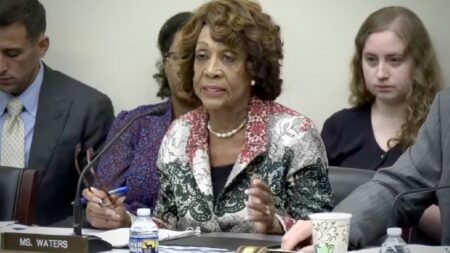NYSE President Lynn Martin is open to offering crypto trading, but the lack of clear regulatory guidance is an obstacle, she says.
U.S. regulatory environment will improve in the next couple years regardless of the election outcome, Tom Farley, the CEO of Bullish and Martin’s predecessor at NYSE, predicted.
AUSTIN, TX — The New York Stock Exchange would consider offering cryptocurrency trading if the regulatory status of such an expansion by the stock market giant was clearer, the company’s president said.
“If there was clear regulatory guidance [in the U.S.], it would be an opportunity to look at,” Lynn Martin said Wednesday during a panel discussion at Consensus 2024 in Austin, Texas.
U.S-listed spot bitcoin (BTC) exchange-traded funds (ETF) amassing $58 billion of assets is “a strong sign” that there’s demand for regulated crypto products, she added.
While traditional financial markets and digital assets are increasingly getting more intertwined with more traditional financial heavyweights offering crypto products, the lack of regulatory clarity is still weighing on the industry slowing innovation, Martin and Tom Farley, CEO of crypto exchange Bullish, discussed during the panel discussion. (Bullish is the parent company of CoinDesk. Farley previously had Martin’s job at NYSE.)
Read more: NYSE Plans Bitcoin Options, Bringing Another TradFi Giant Into Crypto
“The fact that you’ve seen $58 billion or so come to the ETFs has been a strong sign that the market is looking for regulation in traditional structures,” Martin said. “So, hopefully, the [U.S. Securities and Exchange Commission] saw the inflows and said, ‘Hey, this makes a lot of sense,’ considering bitcoin ETFs have been a tremendous success.”
NYSE’s U.S.-based rival, the Chicago Mercantile Exchange (CME), a giant in regulated crypto futures trading, is planning to launch spot crypto trading to clients, the Financial Times reported earlier this month.
Farley highlighted the sudden change of heart towards crypto in U.S. politics, including the ousting of the anti-crypto chair of the Federal Deposit Insurance Corp. (FDIC), the passage of the Financial Innovation and Technology for the 21st Century Act (FIT21) bill in the House, and Republican presidential frontrunner Donald Trump doubling down supporting crypto in a rapid chain of events.
“Five years of evolution happened in five minutes,” he said. “I’m really optimistic about what it means in this country. I think, just like in Europe, just like in Hong Kong, you’re going to have regulators codified, ‘Hey, what’s your reasonable digital assets industry look like.'”
“You’re gonna see progression in 2024 and 2025, irrespective of whether or not it’s Trump or Biden or Michelle Obama [will be president],” he added.
Martin said she continues to be optimistic about using blockchain technology to make financial processes more efficient and transparent, especially for less liquid assets such as municipal bonds.
However, Farley said traditional, real-world assets won’t migrate to digital asset rails en masse given regulators’ distrust towards public blockchain plumbing. “Regulators want to get their power-hungry, sticky little fingers on everything,” he said. “How do you get your fingers on the Solana? How do you get your fingers onto something that’s decentralized?”
Hence, regulators would likely push TradFi firms towards developing private blockchains instead of using the existing blockchains for settlement, he said.
Read the full article here









